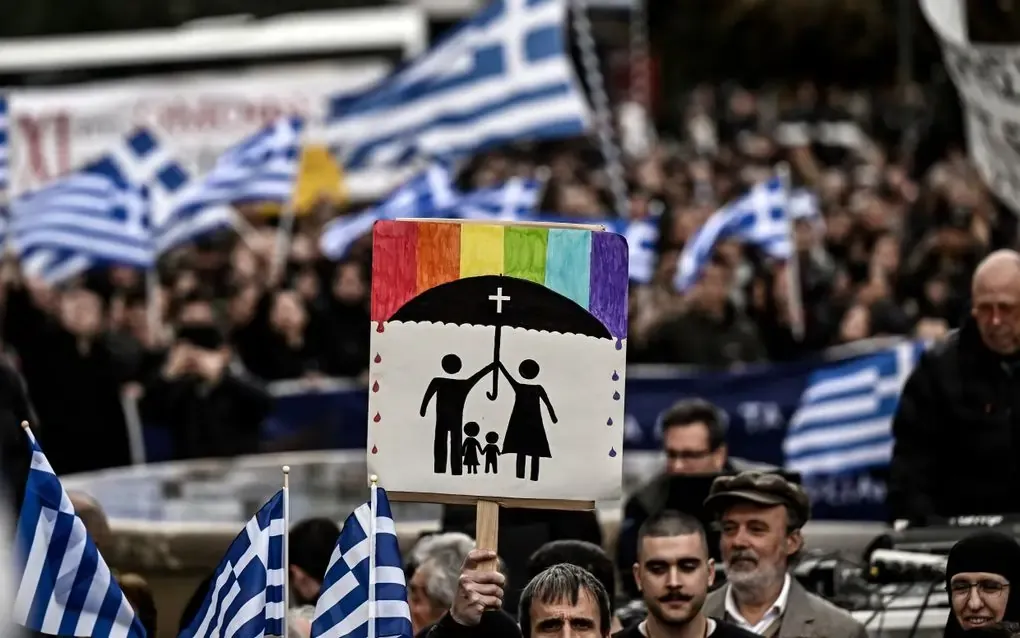The clergy is demanding consequences for what they deem a "demonic" move by the government. Clerics are calling for the excommunication of MPs who backed the law, labeling them as "immoral lawmakers." The bishopric on the island of Corfu has taken a bold step by banning two local MPs from participating in any religious rites, asserting that these individuals have committed "the deepest spiritual and moral error."
The island's bishopric issued a statement urging the MPs to repent for what they see as an impropriety. Failure to do so, according to the bishopric, would automatically lead to the exclusion of these lawmakers from the Christian rite of communion and other church events.
Greece, already known for its rich history and tradition, made history itself by becoming the world's first Orthodox Christian nation to pass legislation permitting same-sex marriage. The move was backed by 175 MPs from across the political spectrum, showcasing a significant shift in societal attitudes.
However, the Orthodox Church, a powerful and influential institution in Greek society, did not embrace this change. Archbishop Ieronymos, considered a moderate within the church hierarchy, suggested putting the issue to a popular referendum. This proposal stems from a nation where polls indicate only a narrow majority supports marriage equality, and even within the governing New Democracy party, there is open opposition.
The law not only legalized same-sex marriage but also extended parental rights to gay couples. It is worth noting that the legislation stopped short of allowing same-sex couples to have children through surrogacy, reflecting the complexity of societal acceptance.
Prime Minister Kyriakos Mitsotakis, who supported the law, faced harsh criticism from the Orthodox Church. Archbishop Ieronymos went as far as suggesting a popular vote, emphasizing the divergence of opinions between the government and the church on this matter.
The Holy Synod, the church's governing body, signaled its discontent by announcing a departure from tradition. The Orthodox Sunday service, one of the holiest days in the Eastern Orthodox calendar, will not be held in the capital's cathedral. Instead, it will take place in a smaller church to which President Katerina Sakellaropoulou has not been invited.
Moreover, the Archbishop and other synod members declined the president's invitation to a meal typically attended by the country's secular and spiritual leaders on the same day. This deliberate distancing from official events underscores the deep divide between the government and the church on the issue of same-sex marriage.
An interesting twist in this unfolding drama is the reaction to President Sakellaropoulou's attendance at a celebratory dinner with government officials after the vote. The dinner took place in a restaurant owned by a member of the LGBTQ+ community, prompting a cleric to confide that the Archbishop had been "distressed" by this news.
The tension reached a new level when an open letter to Bishop Ambrosios called for the excommunication of Prime Minister Mitsotakis and MPs who supported the legislation. The letter, passionately stating that "Our Orthodox church is under siege," urged a revolution against those perceived to be diluting the law of God.
The letter continued, designating the prime minister and the 175 deputies in the Greek parliament as the protagonists of a "moral crime" and insisted on their excommunication. This fervent plea reflects the gravity of the situation and the strong sentiments within certain segments of the Orthodox community.
Ecclesiastical fury spilled into the public domain shortly after the first same-sex marriage took place at a town hall in Athens. Archbishop Ieronymos openly expressed his displeasure with the law, making it clear that he hoped none of the reporters present would ever enter "marriages of such a kind."
In conclusion, Greece's historic step towards legalizing same-sex marriage has ignited a fierce clash between the government and the powerful Greek Orthodox Church. The calls for excommunication, the distancing from official events, and the passionate open letter underscore the magnitude of the disagreement. As Greece navigates this new societal landscape, the tension between tradition and progressive values comes sharply into focus, leaving both political and religious leaders grappling with the consequences of change.

